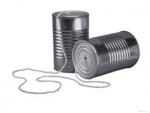Great observations.
There has been some TETRA activity in the US recently. I don't recall exactly who the users are, but I seem to remember it being an east coast based utility using them.
Motorola was fighting it for a long time, but it's been allowed.
TETRA is a spectrum hog, and it likely won't take off here with so much competition for spectrum. More than likely, LTE will fill the role.
And, EXACTLY, "D Block" will likely turn into another boondoggle. There is this huge rush towards LTE by some public safety agencies, and I think it's going to be one more epic failure. The technology is sound, but there are a few major issues that likely will not be addressed:
The systems require a lot of infrastructure, and your average public safety agency will not be able to afford to build their own system, period.
The big agencies that can, will, and will likely bring in a few other, smaller local agencies to the systems.
For the most part, LTE is only an urban thing. The infrastructure necessary to support the service is not going to scale well to rural applications. The 700MHz band is a poor performer for rugged topology, like the majority of the western US. Likely it will be useful in the urban areas of the East Coast.
The agencies that do build out these systems will need to do it with the assistance of other agencies to share the cost. This will mean the operation of these systems will be done by committee, and that isn't always a good thing.
Other than a few major urban areas, the rest of the agencies that build these systems don't have the man power necessary to support this type of service. That will mean that support and operation of these systems will get turned over to system providers. This will mean less control over these "public safety" radio systems by public safety. The systems will be controlled by for profit companies that will not have public safety interests in mind, but will be more interested in profit. The results will be officer deaths because systems won't work properly when needed.
The rest of the systems will end up as glorified cell phone systems. They will likely end up under control of cell phone companies, either AT&T or Verizon, maybe both, as they are the only ones that have the knowledge, technical staff and sites to support this service. The systems will be run on a cost recovery basis, and public safety will get their budgets drained. AT&T and Verizon will make BILLIONS off the local governments, and we as taxpayers will end up footing the bill.
Public safety LTE/D-Block is going to end up as another cellular/Nextel type service run by the carriers, mark my words. In the end, pubic safety WILL loose, and we the people will pay the bill.
LMR will still be around, and when public safety agencies realize they can't afford LTE, they'll go back to it. What remains to be seen is if the FCC will have sold out the spectrum from under public safety when this happens.
As with Nextel and the whole rebanding mess, Motorola will make money off it. They will make money off selling and operating the LTE systems (think Nextel/Iden). They will then make money selling LMR equipment back to these agencies when LTE evolves into just another cell service.
If you think that AT&T and Verizon is going to build out LTE for ONLY public safety, you will be mistaken. That will be the original rules, but eventually, the carriers will whine about how they are loosing too much money. LTE/700MHz D block will be bastardized and will get shared with non-public safety users to offset the build out costs (these discussions have already begun). The spectrum will not be sufficient to handle everyone, and once again, officer safety will suffer. In the end, LTE/D-block will be used as a back up service to real dedicated public safety LMR systems, and LTE/D-block will go the way of Nextel. Those 700MHz frequencies will then get fully turned over to the cell carriers just like they originally wanted. The only difference in giving D block to public safety is it will allow the cell carriers to charge a lot more to build "public safety grade" systems. They will end up with the spectrum like they originally wanted, and will still get to turn it around and sell it to the general public. Again, big industry will profit and public safety will loose.


